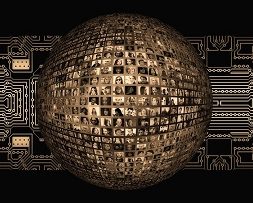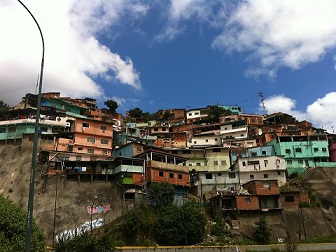The ideas and revolutionary practices of Marx also served as a guide for the continuation of other revolutions over the course of the 20th century.
Karl Marx, along with his loyal comrade and co-author of several key works on socialism as a social science, Frederick Engels, completed theoretical work whose social, political and ideological importance still reverberates around the world to this day.
Marx, as a philosopher, was very critical of the philosophical systems of his time. In his thesis about Feuerbach he wrote a phrase that has become famous and is written on his tomb: “The philosophers have only interpreted the world in various ways. The point, however, is to change it”. This means that one must not just contemplate the world as it is, but transform it. In other words, knowledge and theory must have a beneficial purpose for humanity.
In the Communist Manifesto, the famous work published years later, in 1848, co-written by his friend Engels, after an analysis of global history it would forecast the fall of the bourgeois order by the action of conscious and organised workers.
But it is in Capital, written in the Reading Room of the British Museum, where Marx carried out a deep analysis and the most radical critique of the capitalist system, which resonates to this day.
This analysis has served to demonstrate the point that capitalism is not eternal, and that the crises that accompany this system and inflict misery on the workers and the masses, are the heralding of a new socio-economic order.
 Marx called this new order socialism, that is, a period of human history that would be followed by an advanced stage called communism.
Marx called this new order socialism, that is, a period of human history that would be followed by an advanced stage called communism.
These radical and revolutionary ideas progressively spread across the globe and to this present day continue to inspire many movements and revolutions all over the world, as was the case in Tsarist Russia.
In 1917 Russia was going through an intolerable situation, because of war, famine, poverty, and, above all, the unlimited power of Tsar Nicholas II and the Romanov family, who had ruled an autocratic regime marked by a lack of liberties for more than 300 years.
Vladimir Ilyich Ulyanov, better known by the alias Lenin, was a follower of Marx’s ideas and, along with the Bolsheviks, carried out the assault on power to put an end to the autocratic tsarist regime, and to put an end to the war and the famine experienced by Russian workers and peasants.
For the first time in history, there was a change in the social regime, from capitalism to socialism. This was not just a coup d’etat; rather it was the start of a new era in world history. Even one hundred years later, this is the true meaning of the October Revolution.
Today the regime put in place by the Bolshevik Revolution no longer exists, but what still does exist is socialism as an alternative to capitalism, as an ideal and a utopia of a better world. In fact, the Russian revolution inspired a number of other revolutions throughout the 20th century.
Marx, and particularly Lenin, demonstrated that capitalism is a global system and that this system takes the form of imperialism and colonialism.
 Of course, capitalism develops technology and productive forces, but at the same time it leads to the concentration of wealth in a few hands, and thus brings with it the impoverishment of the working masses, as well as the exploitation of the world’s poorest nations, in Asia, Africa, and Latin America.
Of course, capitalism develops technology and productive forces, but at the same time it leads to the concentration of wealth in a few hands, and thus brings with it the impoverishment of the working masses, as well as the exploitation of the world’s poorest nations, in Asia, Africa, and Latin America.
In Latin America we have witnessed revolutions like the Sandinista Revolution and the Cuban Revolution, amongst others, that have sought to change the situation of injustice. One way or another, these revolutions have rested on the great October Revolution that we commemorate here today. To talk about the October Revolution is to talk about socialism. But after all these experiences and events, what does socialism mean today?
What does socialism mean for Latin Americans and for Europe today? Let’s celebrate the enduring universal message of the October Revolution. This message is about the search for a fairer, more egalitarian, more humane social order, opposed to the greed of the bourgeoisie and the plutocratic classes, who accumulate wealth without sharing it with the masses.
The “Paradise Papers” are the clearest proof of how the rich evade taxes by hiding their wealth in tax havens while schools, hospitals, universities, pensions and the NHS suffer from a lack of funding. Socialism is the search for a system that differs from the neoliberal model imposed by the bourgeoisie in order to retain their power and profits. Socialism is opposed to the model of austerity and privatisation. Socialism means social investment before the profits of the few.
Socialism is the construction of a fairer society, opposed to war and arms races. It promotes peace and progress.
Socialism has changed in terms of its form but not in terms of its content. The world has certainly changed, it has become even more globalised, and we are living in the Information Age where the media wields great power.
 On the other hand, migratory flows have changed societies.
On the other hand, migratory flows have changed societies.
Socialism meant and will always mean equality, bottom-up democracy, justice, and participation. But without true equality it would lose its essential meaning. That’s why socialism, before anything else, is about the recognition of women’s rights, respect for diversity, respect for the rights of minority groups, of immigrants, of refugees, of indigenous peoples, and of LGBT people.
The socialism of our time has also shifted towards the respect and rights of nature, of Pacha Mama.
Socialism has diversified, its meaning has broadened and been enriched. In this sense, new movements and groups have joined those social classes typically delegated the task of social transformation in their search for equality and social justice.
Therefore, it will not be possible to create an alternative society to capitalism without the unity of all of these movements.
It’s increasingly harder to talk of a single socialist model. Each country adjusts socialism’s principles to fit their reality. J C Mariategui, the Peruvian Marxist thinker, argued that socialism could not be replicated or copied from existing models, rather it must be a heroic creation.
The Russian Revolution managed to take power because it was the result of Lenin’s original interpretation of Marx’s ideas, adapted to the existing conditions in Russian society.
Every time one revolution has tried to copy another, it has failed.
 Latin American socialism has left its own mark. With Fidel, Che Guevara, Sandino, Hugo Chavez, Evo Morales and many other socialists, Latin America has demonstrated its diverse, yet unitary, reality, ever since the times of Bolívar, Sucre, Manuelita Saenz, Marti, and many other fathers of our independence.
Latin American socialism has left its own mark. With Fidel, Che Guevara, Sandino, Hugo Chavez, Evo Morales and many other socialists, Latin America has demonstrated its diverse, yet unitary, reality, ever since the times of Bolívar, Sucre, Manuelita Saenz, Marti, and many other fathers of our independence.
This dialectic of difference and unity is what defines grand ideas and new social systems. If we live in a globalised world, then social justice cannot be anything other than global.
*Claudio Chipana: Peruvian philosopher.
(Translated by Matthew Rose – Email: mattyrose1995@gmail.com) – Photos: Pixabay

 Claudio Chipana*
Claudio Chipana*










.jpg)












